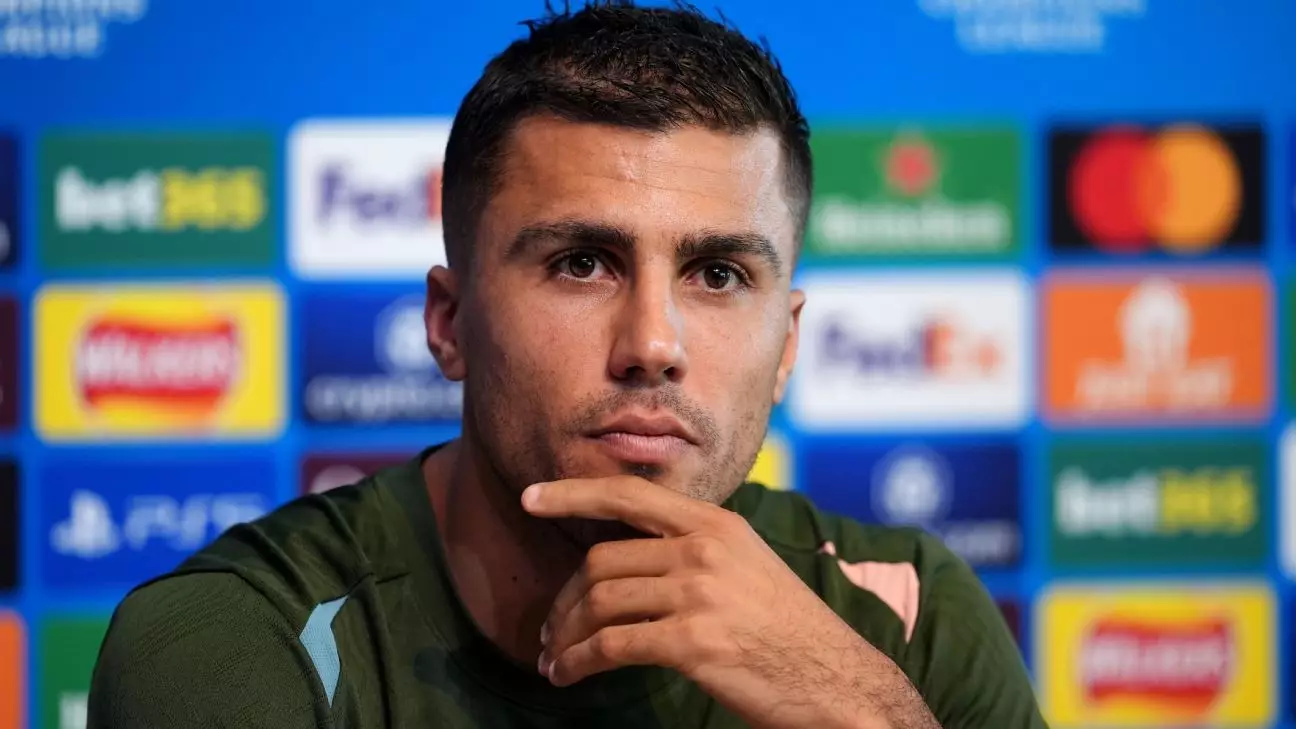In contemporary football, the balance between sporting ambition and player welfare is increasingly precarious. Manchester City midfielder Rodri has recently articulated the growing concern among elite players regarding their grueling schedules. Despite being a pivotal figure in his club and national team, Rodri’s own experience reflects a broader systemic issue in professional football — one that could lead to drastic actions if left unaddressed.
The Weight of Increased Fixtures
The rigors of modern football are exemplified by Rodri’s workload, having played an astonishing 63 matches last season, culminating in a late Euro 2024 final. With the introduction of new competitions like the expanded Champions League and a revamped Club World Cup, top players could potentially find themselves facing a staggering 85 games in one season. The intensity of such a schedule raises critical questions about athletic longevity and performance sustainability.
Rodri’s frustration resonates on a shared frequency among professionals who advocate for more manageable workloads. “If it keeps this way, there will be a moment where we have no other option,” he warns, highlighting the collective sentiment among players who are increasingly vocal about their limits.
The physical and psychological toll on players cannot be ignored. Rodri emphasizes that optimal performance typically requires a more balanced approach, suggesting that between 40 to 50 games per season is ideal for maintaining peak form. Going beyond 60 or 70 matches begins to compromise a player’s physical capacity, and this is a sentiment echoed across the community of professional athletes.
“From my experience, it’s too much,” he reiterates, advocating for introspection within the sport regarding the current demands placed upon players. The culture of endurance that has come to define elite football may ultimately threaten the very essence of competition, where skills are overshadowed by fatigue.
The Risk of Unrest and Potential Strike
Rodri’s candid remarks hint at a deeper malaise within the sport, suggesting that a potential player strike might not be as far-fetched as one could assume. The juxtaposition of player welfare against commercial interests creates a tension that risks alienating the very individuals who are the cornerstone of the sport.
While the narrative often centers around lucrative contracts and the prestige of international fixtures, it is critical to recall that the athletes themselves are at the forefront of these challenges. The risk of a strike is not merely a threat; it signals the desperation of athletes seeking to reclaim agency over their own careers and well-being.
As discussions around strikes become more prominent, the football community must carefully consider the implications such actions could have on player relationships, fan experiences, and the integrity of the sport itself. Reforming the fixture calendar to prioritize player health might not only avert unrest but ultimately enhance the quality of football.
Rodri’s aspirations — both on and off the pitch — serve as a grounding reminder of the human element embedded in the sport. By addressing the workload issue, football can embrace a healthier model that values players’ welfare equally with competitive integrity. As we look to the future, let it be marked by reasoned dialogue and proactive decisions that prioritize the athletes who grace the beautiful game.

Leave a Reply